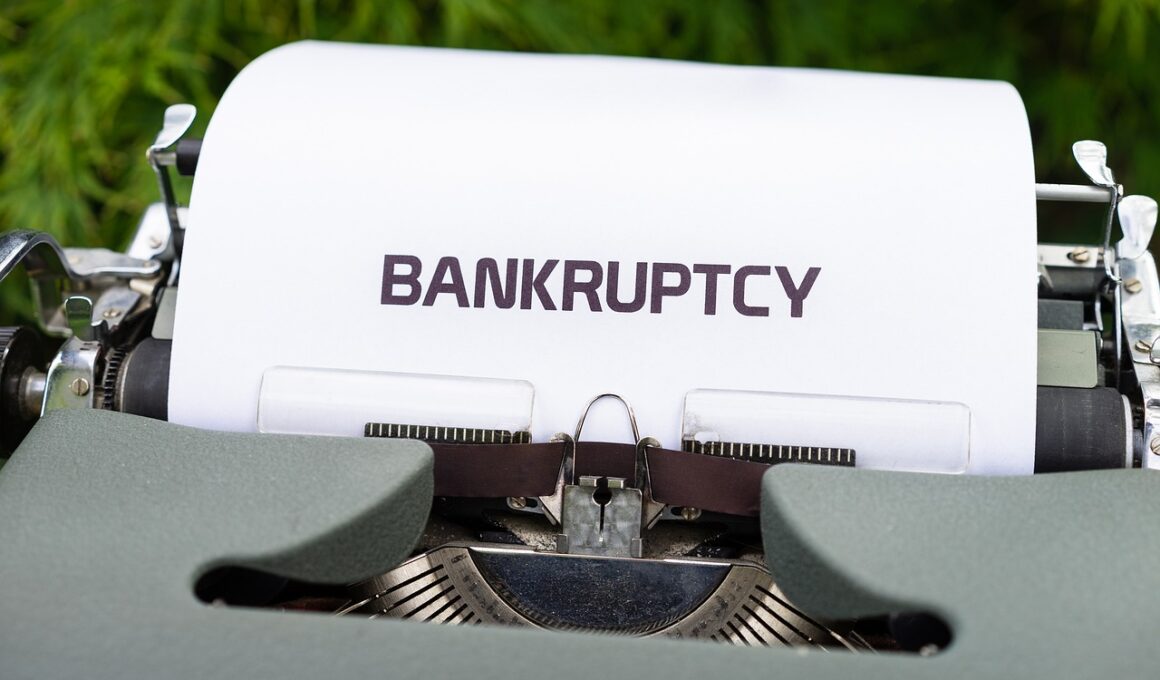Understanding the Different Types of Bankruptcy and Counseling Approaches
Bankruptcy is a legal process that allows individuals or businesses to eliminate or repay some or all of their debts. Various types of bankruptcy exist, mainly designed for individual and business needs. The most common forms for individuals are Chapter 7 and Chapter 13. Chapter 7 bankruptcy involves liquidating non-exempt assets to repay creditors, while Chapter 13 allows individuals to create a repayment plan to repay over three to five years. Businesses typically opt for Chapter 11 bankruptcy, which restructures their debts and allows them to continue operating while repaying creditors. Understanding these differences is crucial when seeking assistance through counseling and education services. Specialized programs exist to help navigate consumers through these types. These programs can provide crucial financial education, helping consumers understand the repercussions of bankruptcy and the potential for recovery. The proper guidance improves the chances of achieving a favorable outcome, thus stabilizing financial futures. Consulting with certified professionals ensures the advice you receive is tailored, legally sound, and beneficial for your specific situation.
The Importance of Bankruptcy Counseling
Bankruptcy counseling is an essential step in the bankruptcy process, providing individuals with the knowledge and resources they need before filing. Such counseling typically includes credit counseling sessions, which are required by law in many jurisdictions. This counseling aims to analyze an individual’s financial situation, helping them understand the implications of filing for bankruptcy. It often highlights alternatives to bankruptcy, encouraging people to consider less drastic measures, such as debt management plans. Many nonprofits offer counseling services, and these can be more affordable and accessible when compared to private options. Counseling is not only about legal guidelines but also about personal finance management. Understanding budgeting, debt repayment, and responsible credit use can significantly impact one’s financial recovery. Moreover, educated consumers are less likely to repeat the financial mistakes that led to bankruptcy in the first place. This educational component is vital for establishing a healthier financial future. Overall, engaging in comprehensive bankruptcy counseling helps empower individuals by equipping them with the tools and strategies necessary for emotional and financial rebuilding.
Once bankruptcy is filed, various counseling services are available that focus on different aspects of financial rehabilitation. These services include financial education workshops, one-on-one counseling, and online resources, all aimed at improving a debtor’s situation post-bankruptcy. Individuals are often introduced to budgeting tools, credit score improvement strategies, and effective savings plans during these sessions. Understanding how to repair credit after bankruptcy is imperative for regaining financial independence. Moreover, these services can lead individuals and families toward more sustainable financial practices. They provide support in making informed decisions and allow participants to set realistic financial goals. By fostering a deeper understanding of personal finance, individuals become more adept at managing their money, leading to fewer instances of future financial distress. Many counseling programs cater to specific demographics, offering tailored advice for different challenges faced by families and individuals. Accessibility of these financial education resources can significantly influence an individual’s recovery journey, providing a pathway to financial stability and wellness once the burdensome effects of bankruptcy have been addressed.
Types of Counseling Services Available
Various types of bankruptcy counseling services cater to the unique needs of individuals and businesses. Nonprofit organizations often provide free or low-cost options, making them an excellent resource for those unable to afford expensive financial advice. Credit counseling involves an initial assessment followed by personalized recommendations based on individual circumstances. For those experiencing severe financial strain, debt management programs assist in negotiating lower payment amounts with creditors. These programs help streamline debt payments, reduce overall interest rates, and prevent future defaults. Educational workshops focus on imparting essential financial literacy skills, covering topics like budgeting, savings, and understanding credit reports. Their goal is not just to deal with the present crisis but to prepare individuals for sustainable financial health in the future. Online resources and mobile apps have emerged as additional support tools, offering users the ability to manage their finances independently. It’s essential to research and find certified agencies to ensure credibility and quality service. Engaging in appropriate counseling services increases the chances of a successful financial recovery and improves long-term financial habits.
Understanding the timeline and requirements of different bankruptcy types is crucial for effective counseling. Each bankruptcy type comes with its own set of rules that vary by region and circumstance. Generally, individuals must submit a detailed schedule of debts, income, and assets, as well as complete required counseling sessions before filing. This preparation contributes significantly to the overall bankruptcy experience. For example, a critical aspect of Chapter 7 is the means test that determines eligibility based on current income versus median income for their state. Chapter 13 requires a proposed repayment plan to be submitted, outlining how debts will be repaid over the specified term. Overall, ensuring compliance with these requirements while availing the necessary counseling aids in navigating legal complexities. Having knowledgeable counselors can ensure that all the paperwork is completed accurately, reducing the risk of delays or rejections in the bankruptcy process. Additionally, having a clear understanding of the financial implications helps individuals commit to the recovery journey after bankruptcy, making them more prepared to implement the suggested rebuilding strategies.
Post-Bankruptcy Support Resources
After successfully navigating bankruptcy, ongoing support is essential for financial recovery. Many individuals may find post-bankruptcy periods daunting as they grapple with diverse issues like rebuilding credit and managing financial stability. Various organizations provide resources tailored to those coming out of bankruptcy, including mentorship programs and online self-help tools. These resources often include credit improvement strategies, assisting individuals in understanding how to rebuild their credit scores effectively. Workshops specifically designed for post-bankruptcy recovery can provide ongoing education, emphasizing financial planning, budgeting techniques, and smart credit use. Additionally, many credit unions offer programs aimed at helping individuals rebuild their financial reputation following bankruptcy. Such initiatives can grant access to secured credit cards or small loans, enabling responsible credit utilization. Embracing these supports helps bolster confidence in individual financial decision-making. The importance of engaging with various post-bankruptcy resources cannot be overstated; they play a vital role in fostering a healthy relationship with money post-bankruptcy, ultimately steering individuals towards long-term financial resilience and stability.
In assessing the vast landscape of bankruptcy counseling and education, it’s important to understand the long-lasting implications of these processes. Individuals seeking bankruptcy are often in vulnerable positions financially and emotionally; hence, the guidance provided through counseling is crucial. By equipping individuals with essential knowledge and resources, they can increase their chances of financial recovery and ensure that similar situations don’t occur again in the future. Furthermore, embracing financial education changes one’s perspective on money management, resulting in healthier financial habits. Understanding the types of bankruptcy and the counseling available helps demystify the bankruptcy process, making it more approachable. Empowered individuals learn to tackle their financial challenges head-on and utilize the lessons from their experiences. Additionally, recognizing the array of services ensures informed choices tailored to their unique needs. Ultimately, a solid foundation in bankruptcy education leads to informed financial decisions that illuminate the path to recovery. The journey to financial wellness post-bankruptcy may be challenging, yet with the right guidance, individuals can successfully overcome the obstacles and regain control over their finances.
Conclusion: Empowering Yourself Through Bankruptcy Education
In conclusion, understanding the different types of bankruptcy and available counseling resources is vital for anyone considering insolvency options. The path to financial recovery may be filled with uncertainties; however, bankruptcy counseling can significantly ease this transition. By educating oneself on legal processes, rights, and responsibilities, individuals become more empowered to make informed decisions regarding their financial futures. Engaging in various counseling services equips individuals with crucial tools necessary for effective financial management and sustainable recovery. As financial situations differ, finding the right counseling program to match specific needs is essential. This support empowers individuals to break free from the cycle of debt, learn responsible financial habits, and ultimately regain control over their financial destinies. Connecting with certified and reputable counseling services increases the likelihood of successfully navigating through bankruptcy while avoiding potential pitfalls. Embracing the knowledge gained through education can set the groundwork for improved financial stability and success moving forward. To facilitate this journey, individuals should consider exploring various resources to expand their understanding of bankruptcy and its related counseling approaches.





